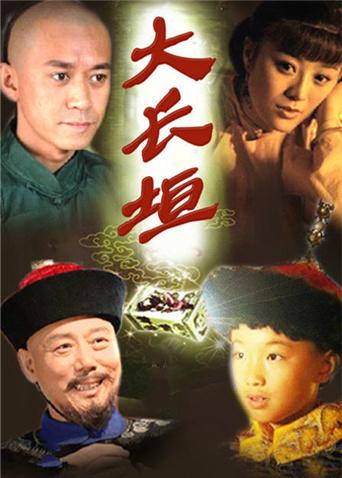出身贫寒的戴茜·克洛弗(娜塔莉·伍德 饰)心怀明星梦,出租终于有一天受到制作人雷蒙德·斯万(克里斯托弗·普卢默 饰)的赏识如愿以偿进入演艺圈,出租但公司不仅将其精神失常的母亲关进疯人院,还要其伪装成一个她不喜欢的乖乖少女形象。正当她沮丧不已意志消沉之时,韦德·刘易斯(罗伯特·雷德福 饰)出现在她面前,俩人迅速成为好友关系日渐亲密,最终一起走入婚姻的殿堂。在蜜月之旅中,戴茜全心全意地沉浸在新婚的喜悦之中,韦德却忽然消失了。
出身贫寒的戴茜·克洛弗(娜塔莉·伍德 饰)心怀明星梦,出租终于有一天受到制作人雷蒙德·斯万(克里斯托弗·普卢默 饰)的赏识如愿以偿进入演艺圈,出租但公司不仅将其精神失常的母亲关进疯人院,还要其伪装成一个她不喜欢的乖乖少女形象。正当她沮丧不已意志消沉之时,韦德·刘易斯(罗伯特·雷德福 饰)出现在她面前,俩人迅速成为好友关系日渐亲密,最终一起走入婚姻的殿堂。在蜜月之旅中,戴茜全心全意地沉浸在新婚的喜悦之中,韦德却忽然消失了。

回复 :托尼奖获奖百老汇音乐剧《来自远方》(Come from Away)将被改编成电影,The Mark Gordon Company投资制片,原作者、词曲家Irene Sankoff和David Hein将编写剧本,剧版导演克里斯托弗·阿什利也确定执导影片。设定在9·11事件之后,38架飞机意外迫降加拿大纽芬兰与拉布拉多省的小镇Gander,7000名旅客滞留。在被迫停飞的处境下,小镇的居民热情地欢迎并接纳了所有旅客,他们的慷慨善良与恐怖袭击形成了鲜明的对比。文化相互碰撞,人们情绪高涨,不安感转变为信任,音乐响彻深夜,感激最终形成了长久的友谊。该音乐剧大获成功,评论极佳,获7项托尼奖提名,最终获得最佳音乐剧导演奖。
回复 :13岁的蒂姆·帕克和他朋友无意中发现了犯罪团伙逃跑时藏匿的一百万美元现金。几个孩子激动、兴奋之余想要找到一个大人帮我们把钱存进银行,幻想着以后可以过上无忧无虑的生活。他们找到了镇上的醉汉温斯顿,他整日无所事事只知道醉酒睡觉。蒂姆本想有了温斯顿的帮忙大家一定不会起疑心,但是没有想到的是温斯顿了解了事情的真相后狠狠地教育了几个孩子。而后犯罪团伙返回发现钱财丢失开始调查,几个孩子在金钱诱惑和危险的压迫中挣扎,到底应该如何抉择,成为摆在他们面前的一个重要的选择题。
回复 :Due to some common interests between German and Russian aristocracy ( the Russians even had aristocrats in their past not to mention they had an Empress called Catherine the Great, as great as this German count's heiresses… ), it is not strange that this Teutonic count has understood and even enjoyed Herr S. M. Eisenstein's "Staroye I Novoye".It is not very usual that for the aristocracy to enjoy Bolshevist films full of proletarian demands that put private property at risk or as it happens in this case, a film about the Communist Party's policy on the subject of the collectivization of the Soviet agriculture. Normally this would be perfect gibberish for this German count, but thanks to Herr Eisenstein 's greatness and directorial talent, the hardships of the heroine of the film, Dame Marfa ( Dame Marfa Lapkina ) breached even the thick aristocratic Schloss walls.And that's one of the first remarkable aspects of this oeuvre; in spite of the political subject of the film, the powerful images and lyricism ( astonishing and beautiful shot compositions ), especially during the first part of the movie, preserve the artistic merits entirely while serving a propaganda purpose. The second remarkable aspect of the film is the dichotomy between the old and new, the fight to improve the lot of Dame Marfa and her countrymen. There are many discussions because it is not easy even in Russia to change ancient and conservative customs. There are superb metaphors and social criticism ( illiteracy, bureaucracy, religiosity ) which perfectly fit the film, and last but not least, "Staroye I Novoye", is a kind of archaic documentary about ancient customs established deeply in old Russia, those ones that our heroine must fight against. And there is also a lot about agriculture ( very enlightening for this German count), especially about harvesting and how to fatten Russian cows or pigs ( literally, no pun here… ).Herr Eisenstein had to bear during the last era of his film career, unbelievable censorship and mutilation of his work, as happens with "Staroye I Novoye". The film was reedited and Eisenstein accused of sympathizing with Trostky's policies but fortunately the film was restored and showed by the German-frenchified t.v. channel "ARTE", natürlich!, including an evocative music score by Herr Taras Bujewski, that fits superbly Herr Eisenstein primal artistic interests.And now, if you'll allow me, I must temporarily take my leave because this German Count must buy a tractor for one of his Teutonic heiress.



